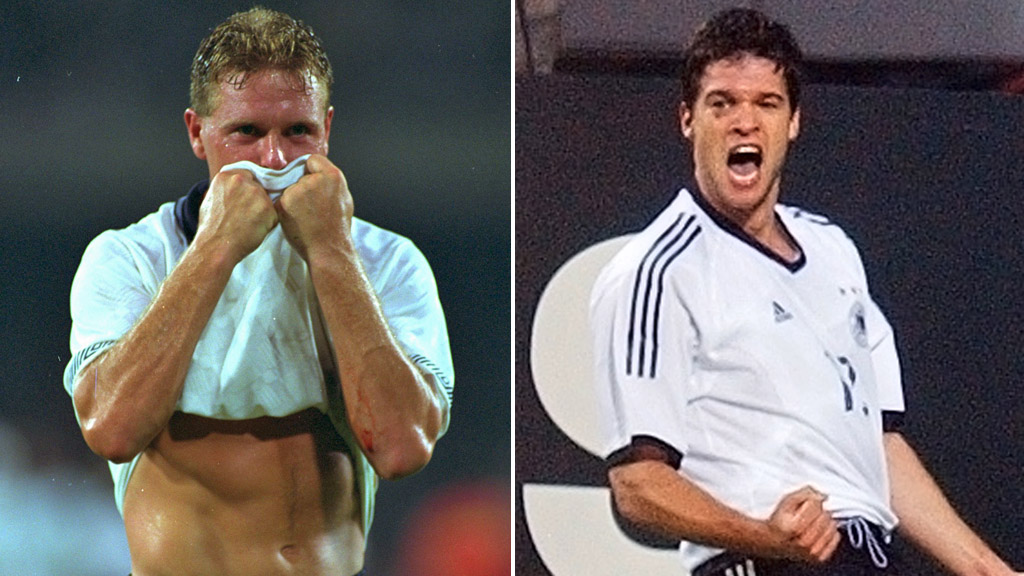Why Germany should be England’s footballing role model
England play Germany at Wembley on Tuesday in one of the fiercest rivalries in football. But given the Germans’ record of tournament success, should England not regard them as role models?

Before Friday night’s chastening defeat by Chile, Frank Lampard was handed a golden cap in recognition of becoming only the eighth player in England’s history to make over 100 international appearances, writes John Anderson. He received it from Sir Geoff Hurst, the man whose hat-trick secured England’s greatest ever triumph at Wembley against German opposition nearly half a century ago.
But the years which followed that World Cup win have served only to illustrate the subsequent gulf between the two nations in footballing terms. While Hurst spearheads a nostalgia industry based on the doe-eyed reminiscence of our only ever tournament success, Germany have used history as a spur on a journey of continual reinvention.
Of the 15 post-war World Cups Germany have been involved in, our four times have they fallen before the semifinals.
It took the disastrous World Cup defeat by Germany in Bloemfontein in 2010 to finally and belatedly disabuse most England fans of the absurd notions of birthright and invincibility which had persisted pretty much since Hurst fired his third goal into the roof of the net. The German reaction to that was to shape a team able to exact revenge on Sir Alf Ramsey in Mexico four years later, then lift the World Cup on home soil in 1974.
England’s best World Cup performance since 1966 is a semifinal defeat (to the Germans, inevitably) at Italia 90. During the same period Germany have won two World Cups and three European Championships, contesting no fewer than 11 finals in the two competitions. Of the 15 post-war World Cups they’ve been involved in, only four times have they fallen before the semifinal stage.
Read more: German football - playing the perfect game?
Gazza’s tears
Gary Lineker, who played and scored in the defeat in Turin 23 years ago, memorably quipped: “Football is a simple game: 22 men chase a ball for 90 minutes and at the end the Germans win.” Many a true word is spoken in jest, and there clearly is a huge cultural and psychological chasm in the respective mentalities of the two nations.
Former German international Dietmar Hamann draws an interesting parallel from two different World Cup semifinals to underline why the traits of his countrymen contrast so sharply with that of the English. He suggests that if Paul Gascoigne (pictured above, left) had been wearing a Germany shirt when he fell to pieces after the booking in 1990 which ruled him out of the final, he would have returned as a pariah in his home land for putting his own preoccupations ahead of those of his team.
Had Paul Gascoigne been German when he fell to pieces after his 1990 World Cup semfinal booking, he would have retured home a pariah.
Yet in England “Gazza’s tears” are one of the national team’s most iconic images, a visual representation of a plucky yet unlucky loser syndrome and the feeling that some sort of right has been denied.
Compare and contrast with Michael Ballack (pictured above, right), who suffered the same yellow card hell in the 2002 semi against hosts South Korea and yet reacted by scoring the goal which took Germany through to the World Cup final. And remember, this was a German side which had been humbled 5-1 at home by England the previous September. While English football dined out for months on that one night and bought commemorative T-shirts, Germany were already plotting their revival.
Instant gratification
Tonight Roy Hodgson‘s men aim to become only the second England side to overcome Germany at Wembley since 1966. The stadium holds few fears for a nation whose ability to look back in anger and march forward in defiance contrasts sharply with the English trait of looking back in pride and stumbling forward in expectation.
Not helped by a voracious and impatient media, everything that surrounds England is either black and white in a culture of instant gratification that has changed little in the past decades and goes far beyond football. The German way has been to explore the colour in between, assess the triumphs and disasters and implement radical solutions in all areas of their game in a constantly evolving process.
Germany shouldn’t be our rivals – they should be our role models.
John Anderson is a football commentator and sports writer. Follow @GreatFaceRadio on Twitter